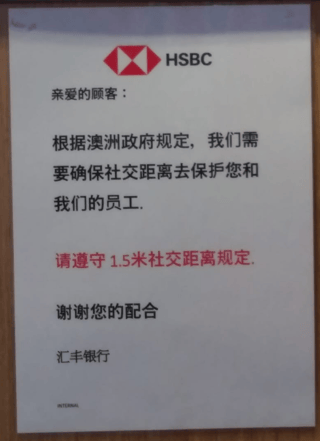My friend took a photo of this Chinese sign in Australia:
It's a formal, long-winded way of saying "stay 1.5 meters apart". Specifically it says:
亲爱的顾客:
根据澳洲政府规定,我们需要确保社交距离去保护您和我们的员工。
请遵守1.5米社交距离规定。
谢谢您的配合
汇丰银行
However, I'm curious as to why there is a 去 in there. I've come up with a few hypotheses: (a) it's some grammar pattern I'm unfamiliar with (something like the reverse of 来 used to connect two verb phrases), (b) it's used to mean "to" in English, (c) it's related to a dialect. I'm not sure if any of these are correct.
Question: Why is there a 去 in the above?
